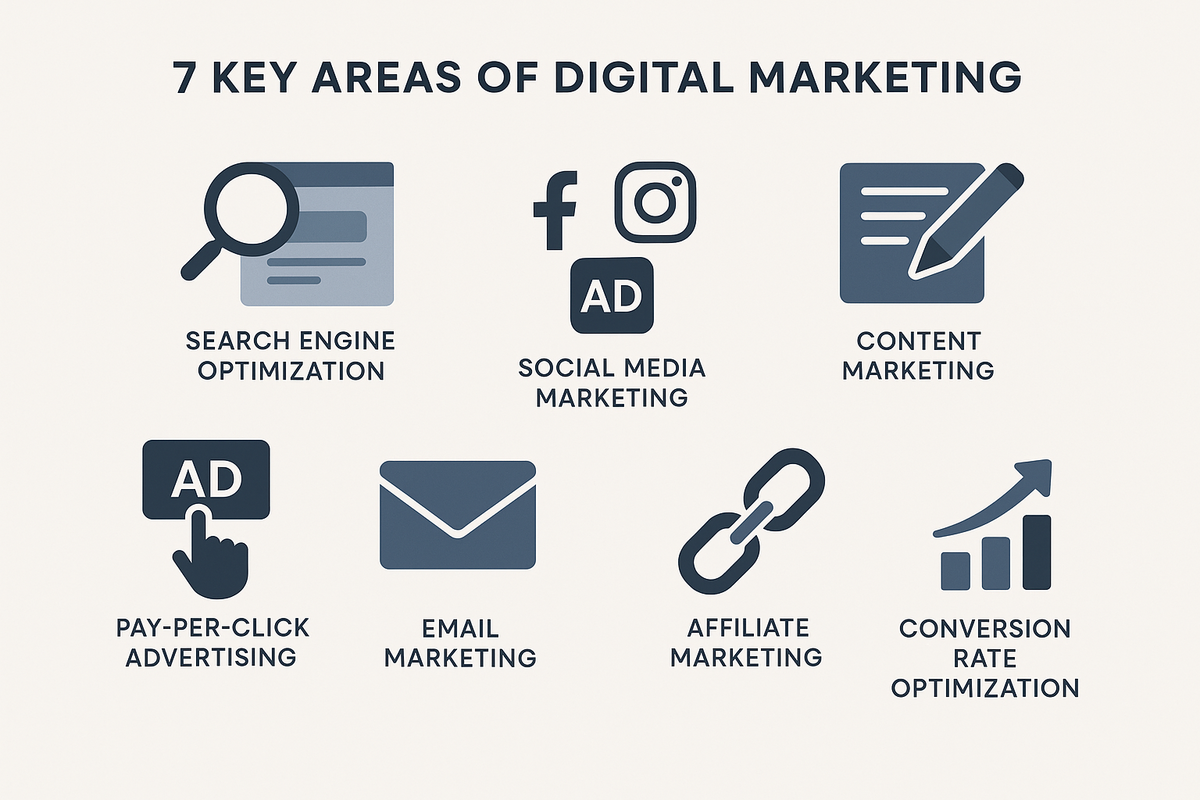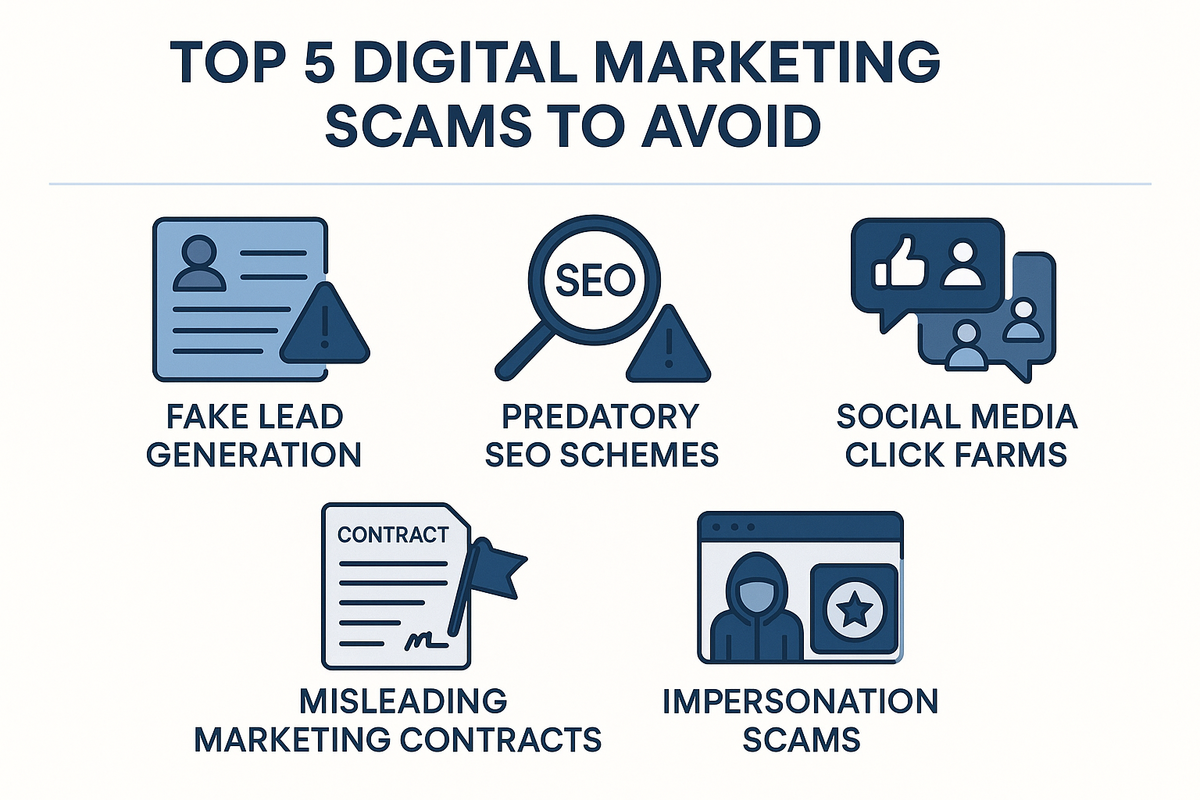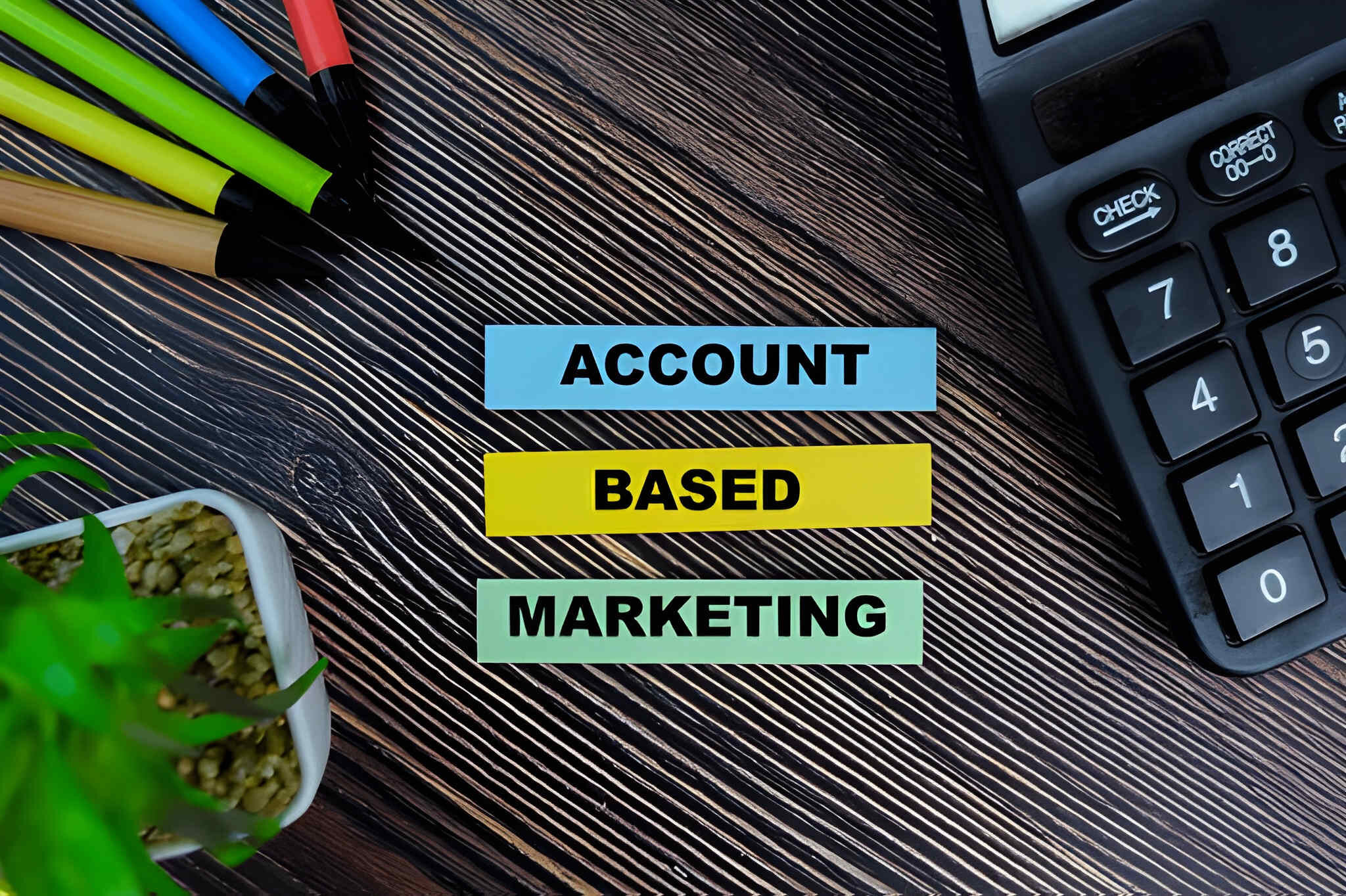With the rise of online business and remote work, many people ask, is digital marketing legit? The digital landscape is booming, and companies worldwide invest billions in online advertising, social media campaigns, and SEO strategies.
Yet, skepticism remains. Some view digital marketing as a quick-money scheme, while others consider it a vital component of modern business success.
The truth is, digital marketing is a legitimate and powerful industry, but like any other field, success depends on strategy, skills, and ethical practices. Misconceptions arise due to exaggerated promises, scams, and the misuse of marketing tactics.
However, when done correctly, digital marketing is an essential tool for businesses and individuals looking to grow their online presence, increase sales, and build long-term customer relationships.
This guide explores the legitimacy of digital marketing, debunks myths, and provides actionable insights on how to succeed in the field. Whether you’re a business owner, freelancer, or aspiring marketer, this article will help you understand the reality and transparency in digital marketing.
What Is Digital Marketing?
Digital marketing has transformed the way businesses reach and engage with their customers. Unlike traditional marketing, which relies on television ads, print media, and billboards, digital marketing leverages online platforms, tools, and data-driven strategies to attract and convert audiences. Companies looking for comprehensive strategies often turn to full-service enterprise digital marketing services, which provide end-to-end solutions for maximizing online visibility and customer engagement.
As more consumers spend time online, businesses must adopt digital marketing to stay competitive and build brand awareness.
Content marketing tools are a great resource for creating engaging and valuable content that will resonate with your target audience and improve your Google keyword ranking over time.
Understanding Digital Marketing
At its core, digital marketing involves promoting products, services, and brands through digital channels. Businesses use the internet to connect with potential customers through search engines, social media, email, and paid advertisements.
The advantage of digital marketing is its ability to track results, target specific audiences, and personalize customer interactions.
Digital marketing is used by global corporations, startups, and individual entrepreneurs to achieve a variety of goals, including:
- Increasing brand visibility
- Driving website traffic
- Generating leads and sales
- Engaging with customers on social media
- Enhancing brand loyalty through personalized content
A well-executed digital marketing strategy can help businesses grow, scale, and compete in the digital landscape.
7 Key Areas of Digital Marketing
Digital marketing is a broad field with several key components. Let’s explore the most important areas that marketers use to drive results.

1. Search Engine Optimization (SEO)
SEO (Search Engine Optimization) is the process of optimizing a website’s content to rank higher on top search engines like Google, Bing, and Yahoo. When a website appears at the top of search results, it receives more organic traffic and potential customers.
Utilizing SEO ranking report software can help track your site's performance and highlight areas for improvement.
SEO involves:
- Keyword Research: Identifying the terms that users search for and integrating them into website content.
- On-Page Optimization: Optimizing title tags, meta descriptions, headings, and internal links.
- Technical SEO: Improving website speed, mobile-friendliness, and user experience.
- Backlink Building: Earning high-quality links from authoritative websites to boost credibility.
SEO is not an overnight success strategy. It requires consistent efforts, quality content, and algorithm-friendly optimizations. However, once a business ranks well on Google, it can receive sustained, free traffic without relying on paid ads.
2. Social Media Marketing (SMM)
Social media has changed how businesses connect with their customers. Platforms like Facebook, Instagram, LinkedIn, Twitter, and TikTok provide opportunities for businesses to engage with their target audience in real-time. Social media marketing, when executed properly with the best marketing tactics, can build customer relationships and foster brand loyalty.
4 Key aspects of social media marketing (SMM) include:
- Organic Content Creation: Posting updates, images, videos, and stories to engage with followers.
- Paid Advertising: Running targeted ads to reach potential customers based on demographics, interests, and behaviors.
- Community Management: Responding to comments, messages, and feedback to build relationships.
- Influencer Marketing: Collaborating with influencers to promote products to their audiences.
Social media marketing helps brands increase engagement, generate leads, and build brand loyalty. Unlike traditional advertising, social media allows businesses to interact directly with their audience and receive instant feedback.
3. Pay-Per-Click (PPC) Advertising
PPC advertising involves running paid ads on search engines, social media platforms, and websites. With PPC, businesses pay only when users click on their ads, making it a cost-effective way to drive targeted traffic.
Popular PPC platforms include:
- Google Ads: Displays ads on Google search results and partner websites.
- Facebook & Instagram Ads: Targets users based on interests, demographics, and behavior.
- LinkedIn Ads: Best for B2B advertising and professional networking.
- YouTube Ads: Uses video ads to engage users before and during video content.
PPC advertising provides instant visibility and measurable results, making it an essential tool for businesses looking to scale quickly. However, it requires strategic budgeting and optimization to ensure a positive return on investment (ROI). Utilizing creative campaign service can also help in crafting compelling and effective ads that resonate with the target audience, ensuring a higher success rate in your PPC campaigns.
Explore Our Performance Marketing Services!
4. Content Marketing
Content marketing is a strategy that focuses on creating and distributing valuable content to attract, engage, and convert customers. Instead of directly promoting products, content marketing aims to educate, entertain, or inspire the audience. A/B testing can be particularly useful in content marketing to determine which types of content resonate best with your audience and lead to higher conversion rates.
4 Types of content marketing include:
- Blogging: Writing informative articles to drive organic traffic and establish authority.
- Video Content: Creating YouTube videos, webinars, and short-form social media videos.
- Infographics: Using visuals to explain complex topics in an engaging way.
- Podcasts: Sharing industry insights and discussions through audio content.
Content marketing works well with SEO services and social media marketing, providing long-term benefits by establishing credibility and trust with an audience. Additionally, B2B SEO services can enhance content marketing efforts by optimizing content for search engines, increasing visibility, and driving targeted traffic.
5. Email Marketing
Email marketing remains one of the most effective digital marketing strategy. It involves sending personalized emails to nurture leads, promote products, and retain customers.
Key elements of email marketing include capturing leads, segmenting your audience, and leveraging performance marketing to maximize ROI on email campaigns.
Key elements of email marketing include:
- Lead Capture: Collecting emails through website sign-ups, landing pages, and lead magnets.
- Segmentation: Categorizing subscribers based on interests and behaviors for targeted messaging.
- Automated Campaigns: Sending follow-up sequences, newsletters, and promotional offers.
- Analytics & Optimization: Tracking open rates, click-through rates, and conversions.
Email marketing provides a high ROI because it allows businesses to communicate directly with customers who have already shown interest in their products or services.
Explore Our Email Marketing Services!
6. Affiliate Marketing
Affiliate marketing is a performance-based digital marketing model where businesses partner with affiliates who promote their products in exchange for a commission.
How it works:
- A business provides an affiliate link to a marketer.
- The affiliate promotes the product through their blog, social media, or website.
- When a customer purchases through the link, the affiliate earns a commission.
Platforms like Amazon Associates, ClickBank, and ShareASale enable businesses to set up affiliate programs. This strategy allows companies to expand their reach without spending money upfront on advertising.
7. Conversion Rate Optimization (CRO)
CRO (Conversion Rate Optimization) is the process of improving a website or landing page to increase the percentage of visitors who take action (e.g., making a purchase, signing up for a newsletter, or filling out a form).
CRO involves:
- A/B Testing: Comparing different versions of a webpage to see which performs better.
- User Experience (UX) Design: Enhancing site navigation and usability.
- Call-to-Action (CTA) Optimization: Improving buttons and forms to encourage conversions.
By optimizing conversion rates, businesses maximize their ROI from digital marketing campaigns.
Effective creative campaign service can also enhance your digital marketing strategies by ensuring that your SEO, social media, and PPC efforts are aligned and optimized for maximum impact.
Myths vs. Facts: Debunking Common Digital Marketing Misconceptions
Digital marketing has become an essential tool for businesses looking to expand their reach and attract customers online.
However, there are still many misconceptions surrounding the industry. Some people believe digital marketing is a quick way to get rich, while others think it only benefits big corporations. These myths often lead to unrealistic expectations and missed opportunities.
To clear the confusion, let’s debunk the most common digital marketing myths and highlight the facts behind them.
Myth 1: Digital Marketing Is a Get-Rich-Quick Scheme
One of the most persistent myths is that digital marketing is an easy way to make money overnight.
Many scammers promote courses and “secret strategies” claiming that anyone can earn thousands of dollars instantly through affiliate marketing, dropshipping, or social media ads. This misconception leads people to believe that digital marketing is effortless and guarantees immediate financial success.
Fact: Digital Marketing Requires Strategy, Effort, and Time
The reality is that successful digital marketing takes time, strategy, and consistency. While some businesses experience quick wins, long-term success depends on:
- Audience engagement and brand-building: Establishing trust and authority in your niche.
- SEO and content marketing: Developing high-quality content that ranks well over time.
- Paid advertising optimization: Continuously testing and refining ads to improve conversion rates.
Most businesses see significant results after months of effort, not days. Sustainable success in digital marketing comes from understanding the target audience, crafting compelling content, and adapting strategies based on analytics. Furthermore, integrating custom web application development services can help streamline your digital marketing efforts by providing tailored solutions that optimize user experience and engagement on your website.
Myth 2: Only Big Businesses Benefit from Digital Marketing
Many small business owners hesitate to invest in digital marketing because they believe it only works for large corporations with substantial advertising budgets. They assume that competing with established brands is impossible.
Fact: Digital Marketing Is Scalable for Businesses of All Sizes
Digital marketing is one of the few marketing methods that levels the playing field. Even with a small budget, businesses can:
- Use organic SEO to rank higher on search engines and drive traffic for free.
- Leverage social media to engage with their target audience without spending on ads.
- Run targeted PPC campaigns with small budgets to reach specific customers.
- Grow an email list and send personalized promotions at a low cost.
Many startups and small businesses have successfully scaled using strategic digital marketing, focusing on niche audiences rather than competing directly with big brands.
Myth 3: Anyone Can Do Digital Marketing Without Training
Because digital marketing is done online, some people assume that anyone can become a digital marketer overnight. They believe that simply posting on social media or running an ad is enough to succeed.
Fact: Digital Marketing Requires Expertise and Continuous Learning
While digital marketing is accessible, mastering it takes time, training, and skill development. Successful marketers learn:
- SEO techniques to optimize content for better rankings.
- Data analysis to track performance and adjust strategies.
- Social media algorithms to improve reach and engagement.
- Copywriting and content creation to attract and retain audiences.
Professional digital marketers invest years in learning and refining their expertise, staying updated on industry trends, Google algorithm changes, and evolving consumer behaviors. UI UX Audit solutions are also crucial for ensuring that the websites or applications used in marketing campaigns provide optimal user experiences, which is fundamental for conversion rates.
Explore Our Digital Marketing Services!
Top 5 Digital Marketing Scams to Avoid
The digital marketing world has seen massive growth over the past decade, offering various opportunities for businesses and marketers alike. However, with this growth comes a rise in scams that can mislead and cost businesses time and money. Understanding how to spot these scams, along with knowing what’s genuine in digital marketing, is essential for anyone navigating this space.

Here are some of the top digital marketing scams to avoid, along with insights into what’s real about digital marketing today. To help businesses keep track of their performance, it's essential to invest in the best SEO reporting software to ensure that they are not misled by fake claims or poor results.
1. Fake Lead Generation
One of the most common scams involves services offering lead generation, but instead of real potential customers, they deliver fake or low-quality leads. These can range from inaccurate contact information to leads obtained through dubious means. Businesses relying on these services may waste valuable resources chasing down leads that never convert.
The truth is, digital marketing is real when done right. Genuine lead generation methods focus on attracting the right audience through organic strategies like content marketing, SEO, and social media engagement. However, businesses must be cautious and conduct due diligence to avoid falling for these scams.
2. Predatory SEO Schemes
Some agencies or freelancers promise quick SEO results by using unethical techniques like keyword stuffing, link farming, or cloaking. While these tactics may provide short-term gains, they often lead to long-term penalties from search engines, damaging a business’s reputation and ranking.
While freelance digital marketing can be legit, it’s essential to vet any SEO service thoroughly. SEO is a long-term process, and any claim of “overnight success” is a red flag. Legitimate SEO strategies prioritize white-hat practices that align with search engine guidelines to build lasting results.
3. Social Media Click Farms
Click farms are a scam where companies or individuals artificially inflate their social media metrics by purchasing fake likes, followers, and comments. These fake metrics can make a business seem more popular than it really is, which can lead to deceptive marketing practices.
The digital online business model is legit, but success on platforms like Instagram, Facebook, and Twitter requires organic engagement. Building real followers through valuable content, interactions, and community-building efforts is the way to go. Authentic social media growth leads to stronger customer loyalty and credibility in the long run.
4. Misleading Marketing Contracts
Some digital marketers use misleading contracts that lock businesses into long-term agreements with hidden fees or unclear deliverables. These contracts may seem attractive at first but could end up being financially draining or ineffective in the long run.
When dealing with marketing contracts, it’s important to ask, “Is freelance digital marketing legit?” The answer is yes, but make sure the contract is transparent, includes clear deliverables, and has reasonable exit clauses. Marketers who are upfront about their processes and outcomes will ensure you get the value you expect.
5. Impersonation Scams
Scammers often impersonate well-known companies, such as Google, claiming they need a payment to fix issues like expired listings or SEO penalties. These calls or emails can be convincing, especially when they claim to represent trusted brands.
Digital marketing is real, but scammers exploit trust in reputable companies to trick businesses into paying for services that don’t exist. Always verify the identity of anyone offering digital marketing services, and avoid paying upfront for services without clear validation.
The Role of SEO in Digital Marketing Legitimacy
Search Engine Optimization (SEO) is one of the most powerful tools in digital marketing. Businesses that rank higher on Google gain more visibility, traffic, and credibility. However, some unethical marketers use black-hat SEO techniques that violate search engine guidelines.
What Makes SEO Legitimate?
- White-Hat SEO Practices: Ethical strategies such as keyword research, content marketing, and proper backlinking. It is similar to understanding what is digital illustration in the context of content creation using the right techniques and tools for genuine results rather than shortcuts.
- User-Focused Content: Writing high-quality, informative content that helps users rather than tricking search engines.
- Long-Term Strategy: SEO takes time to produce results, but legitimate methods lead to sustainable rankings and traffic.
Black-hat SEO, such as keyword stuffing and spammy backlinks, can lead to penalties from Google, harming a website’s credibility. Understanding the difference between ethical and unethical SEO is crucial for anyone looking to enter digital marketing. SEO services for e-commerce are particularly valuable for online stores to ensure they follow ethical SEO practices and improve their search engine rankings.
The Legitimacy of Social Media Marketing
Social media is a critical component of online marketing strategies. Businesses use platforms like Facebook, Instagram, LinkedIn, and TikTok to reach their audience. However, some marketers use fake followers, bots, and engagement tricks to appear successful.
What Makes Social Media Marketing Legitimate?
- Authentic Engagement: Building a real audience through valuable content and meaningful interactions. Just as you might ask how to improve Digital Illustrations to enhance visual content, social media marketing requires the creation of genuine, high-quality content that resonates with your audience.
- Influencer Marketing: Partnering with industry experts to promote products genuinely.
- Paid Advertising: Running targeted ads to reach specific demographics instead of relying on deceptive tactics.
Companies like Nike, Coca-Cola, and Apple invest heavily in social media marketing because it works. However, it must be done ethically to maintain brand trust and avoid account suspensions. Additionally, businesses offering Web Design and Development services can create seamless, user-friendly websites that complement their social media efforts, ensuring a consistent and engaging customer experience across platforms.
Digital Marketing Success Stories: Proof That It Works
Thousands of businesses and individuals have built successful careers and brands through digital marketing. Here are a few examples:
1. Amazon’s Digital Marketing Dominance
Amazon invests billions in its digital marketing strategy, including SEO, PPC ads, and email marketing. Its ability to rank products organically and run targeted ads is a key factor in its success. Leveraging digital marketing solutions enables Amazon to reach a vast audience and drive conversions effectively.
2. Small Business Growth Through SEO
Local businesses like restaurants, gyms, and salons use role of Local SEO to appear in Google searches, attracting customers without spending thousands on ads.
3. Content Creators Making Careers Online
YouTubers, bloggers, and influencers leverage content marketing to generate income through ads, sponsorships, and product sales.
These examples prove that digital marketing is not only legitimate but also essential for businesses and individuals looking to grow in the digital age. Creative campaign services can play a significant role in helping businesses leverage the right strategies for long-term digital marketing success.
How to Get Started in Digital Marketing Legitimately?
If you’re interested in digital marketing as a career or for your business, follow these steps: Consider partnering with a provider that offers full-service enterprise digital marketing services to ensure that all aspects of your digital presence, from SEO to PPC, are strategically aligned for maximum impact. How to measure brand awareness effectively can be done through tools like social media analytics, surveys, and performance metrics, which track engagement and conversions.
- Learn the Basics: Take courses on SEO, content marketing, and PPC advertising.
- Build a Portfolio: Start a blog, manage a social media account, or run small ad campaigns.
- Gain Hands-On Experience: Work with real clients, internships, or freelance projects.
- Avoid Scams: Be wary of "gurus" selling overpriced courses with unrealistic promises.
- Use the Right Tools: Invest in analytics platforms like Google Analytics, SEMrush, and HubSpot to track performance.
- Optimize User Experience: It’s essential to ensure your digital properties are user-friendly and efficient. Utilizing UI UX Audit Services can help identify areas for improvement, ensuring that your website or app provides the best user experience, which is crucial for conversions and retention.
FAQs: Is Digital Marketing Legit?
Is Digital Marketing Legit?
Yes, digital marketing is absolutely legitimate. It has become a critical aspect of modern business strategies, with billions invested annually in online advertising, SEO, social media, and content marketing. When done ethically and strategically, digital marketing can help businesses grow their online presence, generate leads, and build long-term customer relationships.
Is Freelance Marketing Legit?
Freelance marketing is legitimate when practiced professionally and ethically. Many freelancers offer valuable services such as SEO, social media management, content marketing, and email campaigns. However, like any industry, it’s essential to work with reputable freelancers and avoid those who promise unrealistic results or offer subpar services. Always vet freelancers and review their portfolios before hiring.
What Are Some Common Digital Marketing Scams to Avoid?
Digital marketing scams are unfortunately prevalent, especially as the industry grows. Common scams include fake lead generation services, predatory SEO schemes, and click farms that inflate social media metrics. To avoid falling victim, always research and vet the agencies or services you plan to work with. Legitimate digital marketing efforts require time, strategy, and consistency, not quick fixes.
What Are the Truths About Being a Digital Marketer?
Being a digital marketer is both challenging and rewarding. It requires continuous learning, adaptability, and expertise in various areas like SEO, content creation, social media strategy, and paid advertising. It’s not a get-rich-quick career; instead, success comes from sustained effort, creating valuable content, and engaging with target audiences. Digital marketing is a real and growing field with significant opportunities for those willing to invest in learning and professional development.
Is Digital Marketing Real and Effective?
Yes, digital marketing is real and incredibly effective. It uses data-driven strategies to connect with consumers, build brand awareness, and drive sales. With the rise of online platforms like Google, Facebook, and Instagram, digital marketing enables businesses of all sizes to compete on a global scale, even with limited resources. When executed correctly, it offers measurable results and can be a key driver of business success.
Is Freelance Digital Marketing Legit?
Freelance digital marketing is a legitimate career option. Many businesses prefer to work with freelancers for specialized tasks such as SEO, content writing, or social media management. As with any freelance work, success depends on the freelancer's skill, ethics, and professionalism. Freelancers should deliver high-quality results and adhere to industry best practices to maintain their credibility and achieve long-term success in the digital marketing space.
Book Your Free Expert Consultation!
Conclusion: Is Digital Marketing Legit?
So, is digital marketing legit? Absolutely. Digital marketing is a powerful, data-driven approach that has helped businesses of all sizes grow, generate leads, and increase revenue. However, like any industry, success depends on ethical practices, strategic execution, and continuous learning. For businesses like an oil and gas marketing agency, digital marketing can help them reach niche audiences and increase conversions in a highly competitive market.
To thrive in digital marketing, focus on SEO, content marketing, social media engagement, and paid advertising while avoiding shortcuts and scams. Whether you're a business owner looking to scale or an aspiring marketer seeking a lucrative career, digital marketing provides real opportunities when done correctly. Want to build a legitimate and effective digital marketing strategy? Get expert guidance and proven strategies with Centric. Let us help you grow your brand, boost your online presence, and maximize your ROI. Contact Centric today and start your journey toward digital marketing success!








